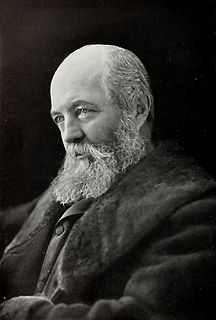Top 5 Quotes & Sayings by Frederick Law Olmsted
Explore popular quotes and sayings by an American architect Frederick Law Olmsted.
Last updated on April 14, 2025.
The enjoyment of the choicest natural scenes in the country and the means of recreation connected with them is thus a monopoly, in a very peculiar manner, of a very few very rich people. The great mass of society, including those to whom it would be of the greatest benefit, is excluded from it. In the nature of the case private parks can never be used by the mass of the people in any country nor by any considerable number even of the rich, except by the favor of a few, and in dependence on them.
If we analyze the operations of scenes of beauty upon the mind, and consider the intimate relation of the mind upon the nervous system and the whole physical economy, the action and reaction which constantly occur between bodily and mental conditions, the reinvigoration which results from such scenes is readily comprehended. . . . The enjoyment of scenery employs the mind without fatigue and yet exercises it; tranquilizes it and yet enlivens it; and thus, through the influence of the mind over the body gives the effect of refreshing rest and reinvigoration to the whole system.
























